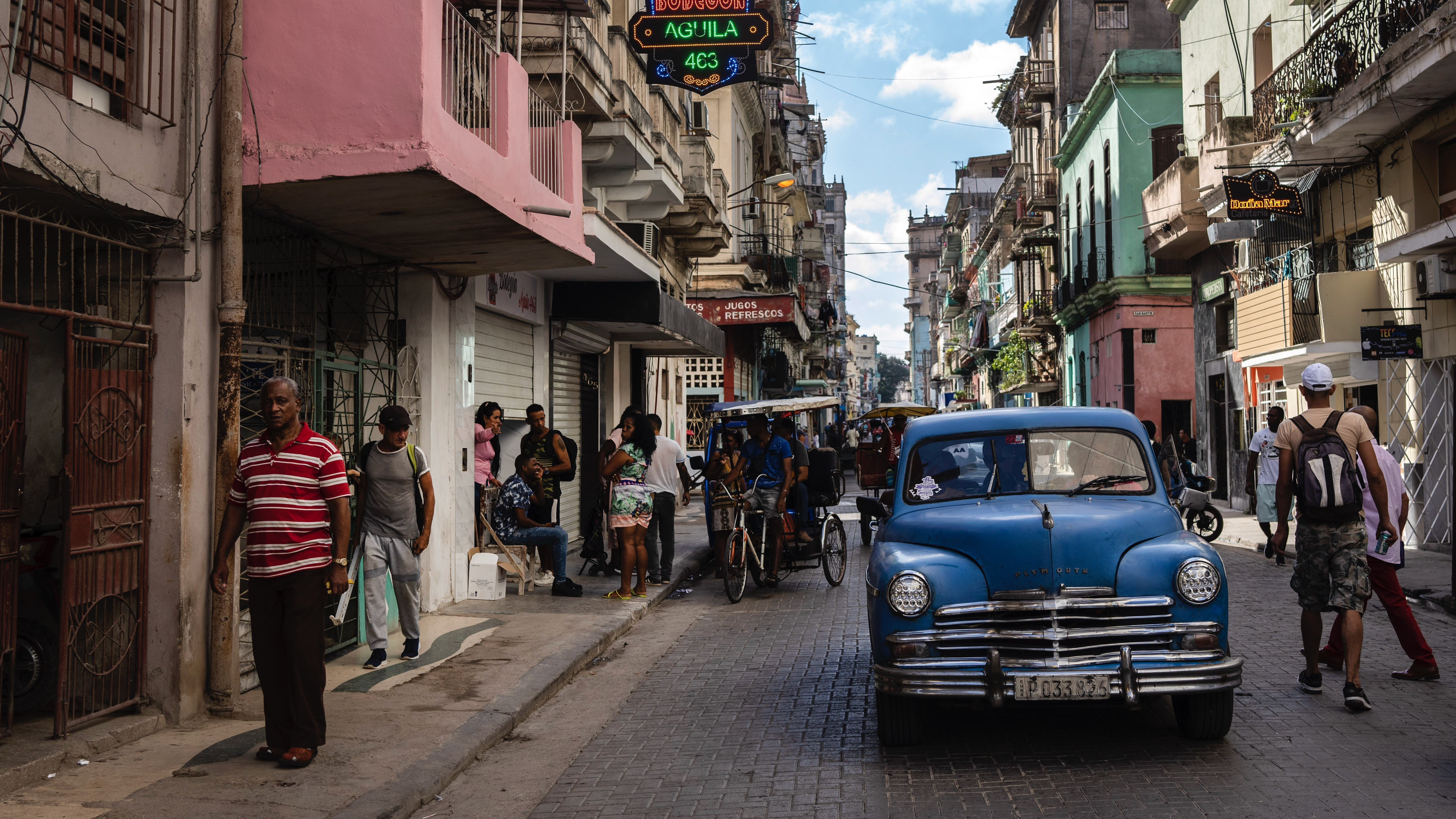Cubans worry about inflation explosion after government austerity measures
Carlos García Aguilera, a taxi driver in Havana, Cuba, is worried about the future of his business in the near future.
He said a 15-minute car ride in Cuba can cost up to a quarter of someone’s monthly salary. Now, things are about to get a lot worse.
“Cubans won’t have money to pay for a taxi ride anymore,” Aguilera said.
The government recently announced a package of austerity measures, in a desperate attempt to revive the country’s struggling finances. Aguiler and other Cubans interviewed by The World say they foresee an inflation explosion coming.
The changes include massive subsidy cuts, raising prices for fuel and basic services, and further restrictions on the emerging private sector.
Most of the changes, including a five-fold increase in the price of gasoline, take effect on Feb. 1, while prices for water, electricity and liquid gas will gradually rise during 2024. Residential areas that consume the most electricity will experience 25% increases, and water bills will triple for some households.
While prices of almost everything on the island are expected to rise, salaries are not.
The average monthly wage in Cuba is $15.
Maria de los Angeles, a retired government employee in Havana, said her pension is only the equivalent of $5 a month — “not even enough to buy a whole chicken in Cuba.”
De los Angeles supplements her income working as a tarot card reader and selling pizza and pasta in an improvised restaurant in her living room.
The government has long subsidized multiple goods and services in Cuba. But officials said they can no longer afford it, because the country needs to fix a massive fiscal deficit, a shortfall in a government’s income compared with its spending.
The Caribbean island is going through its worst economic crisis in decades. The pandemic took a heavy toll on tourism, which is the country’s main economic activity.
Residents have been facing extreme shortages of food, medicine and fuel in recent years. Public services have deteriorated greatly, and power outages are a daily occurrence in many parts of the island.
Some of the price hikes, particularly the increase of electricity, could greatly affect those who operate small, improvised businesses from their homes, a common practice in Cuba amid rising poverty.
The government is defending the new measures in favor of stabilizing the country’s finances.
Cuban Economy Minister Alejandro Gil said last year that the government can no longer subsidize milk, bread or coffee, which is leading to small rations and severe scarcity in many Cuban households.
In 2023, pork production declined by nearly 90%, and the daily egg production dropped by half, compared to 2020. The sugar and coffee harvests are covering less than half of the domestic demand.
“This means Cubans are going hungry,” said Ricardo Torres, a Cuban economist with American University in Washington, DC.
He said he’s not sure if the announced measures are going in the right direction to tackle the fiscal deficit.
“The government has not provided a transparent plan to fix the fiscal deficit, nor how to protect the poorest people,” Torres added.
The new economic plan is particularly concerning for the large portion of the Cuban population that does not receive financial support from family members abroad, or have other ways to get access to dollars.
“Why is the government only cutting subsidies for the people? What about cutting inefficient state enterprises?” Torres questioned.
Cuba is heavily dependent on imports of food, fuel and other goods, and the government blames the coronavirus pandemic, tougher sanctions first imposed by former US President Donald Trump, and the 60-decadeslong US embargo for the country’s most-recent economic collapse.
“The US trade restrictions matter a lot,” Torres said, because the United States is the biggest economy in the world, and it’s only 90 miles away from Cuba, “but the main problem behind Cuba’s economic collapse is not the embargo or the sanctions. It’s Cuba’s own economic model.”
The redesignation, in 2021, of Cuba as a state sponsor of terrorism has had a negative impact on ordinary Cubans’ daily lives, according to Mariakarla Nodarse, assistant director for Cuba at the Washington Office on Latin America, a think tank.
“This label goes far beyond branding the country as an adversary. It impacts any kind of humanitarian aid, business, investment and trade that involves Cuba, and by extension, Cuban citizens,” Nodarse said.
It’s tough to quantify the role of the United States in exacerbating the economic crisis in Cuba, Nodarse said, because there has been mismanagement from the Cuban government side, and because it’s been six decades.
“It’s hard to compare what it was before and after,” she said.
A Cuban herself, Nodarse noted in her last visit there last year that most people feel hopeless about the prospects of an improved quality of life on the Caribbean island.
“All you hear about is conversations about options for going abroad, how to find a sponsor to apply for a humanitarian parole, or for family reunification. It’s in the mind of almost everyone,” she said.
For many Cubans, the only hope is migrating. A recent report by the Washington Office on Latin America shows that about 4% of the Cuban population has left the island for the United States in the last two years.
Alfredo Gutiérrez Duarte, who works reselling auto parts in Havana, said “the dream of every young person in Cuba is to meet a foreigner that can help them leave the island.”
His daily transportation costs will be 13 times greater starting next week.
“I would leave Cuba right away, today, if I had the opportunity, because the conditions here are not suitable for any human being,” Duarte said.
